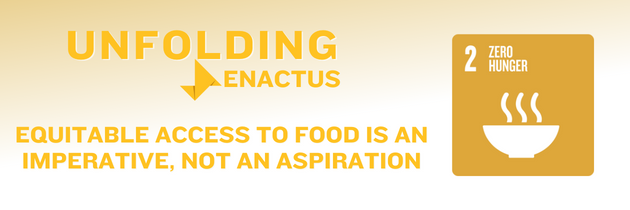
Through entrepreneurial action, Enactus students create sustainable solutions to social challenges. Their collective efforts make Enactus a powerful instrument of change to advance progress on the world’s biggest problems. In this blog series, one United Nations Sustainable Development Goal (or SDG) at a time, we examine how Enactus students are designing, innovating, and pushing boundaries, to create a better world for people, planet, and prosperity.
Equitable Access to Food Is an Imperative, Not an Aspiration
Nestled against the low ridge of the Dorasle mountains lies the agrarian town of Zaghouan, Tunisia. Flocks of sheep belonging to Mr. Aissa dot the fertile landscape under the stony arches of an imposing Roman aqueduct. Mr. Aissa is a proud sheep breeder from a lineage of farmers. He is one of many Tunisians who is finding it increasingly difficult to maintain his flock. Climate change and rapidly escalating prices of livestock feed made with expensive imported ingredients are two factors that are driving up the cost of farming and driving away the next generation from the profession; the cost of commercial cattle feed increased 60% in this last year. For those committed to the profession like Mr. Aissa, the cost of doing business eats away profits, putting them on the brink of financial ruin, struggling to provide for their families.
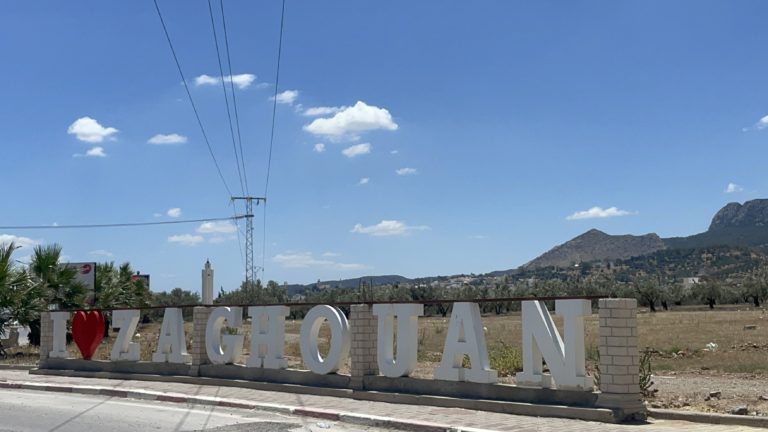
Situations such as Mr. Aissa’s are not unique to Tunisia. Dysfunctional distribution systems, droughts, and conflicts are primary factors contributing to the roughly 800 million worldwide suffering from hunger. More alarming, the World Food Programme reports that the number of people facing acute food insecurity has increased from 135 million to 345 million since 2019 because of conflict and global climate shocks. Enactus teams around the world are creating novel solutions to improve nutrition and access to food in their communities. In the Global South—Africa, South Asia, and Latin America—where developing countries experience these impacts more acutely, Enactus students work on a spectrum of innovations which generate local success and have the potential to scale globally.
In Tunisia, an encounter with Enactus students from The Higher Institute of Computer Science of El Manar – ISI is transforming Mr. Aissa’s livelihood for the better. Recognizing that imported livestock feed costs is a significant factor in making the animal breeding profession untenable for small farmers, the students launched development of locally sourced, more affordable feed. Their solution: EPACT, a nourishing recipe of agro-industrial byproducts and waste suitable for animal consumption. This zero-waste concentrated feed costs 35% less than competitors’ feed and has been certified by the National Institute of Agronomic Research.
EPACT feed production
Mr. Aissa uses the EPACT feed and notices a significant improvement in the health and productivity of his animals. The higher-quality, lower-cost feed allows him to reduce his costs and increase his profits. He stabilized his financial situation.
Issa Jaffela, a sheep breeder helped by EPACT shares his positive experience and results
Mr. Aissa is one of 40 farmers who have already benefitted from EPACT’s livestock feed and are no longer risking bankruptcy as they were before. While EPACT helps farmers, it generates revenue – $168,000 to date. The students imagine a revitalized agriculture sector in Tunisia and neighboring Algeria. They have expanded their education efforts to promote cattle farmer productivity and inspire young future farmers to help restore Tunisian agribusiness.
To scale enterprise, there is work to be done. Access to more capital means better opportunities for market research, reliable sources for raw materials, establishment of a distribution network, quality control systems, and relevant certifications for customer credibility.
EPACT Marketing Lead Ghofrane Ben Amour has a vision of the world where “no hunger is a symbol of equity, justice, and prosperity, where everyone has the chance to live with dignity and fulfillment. It is a world where resources are shared fairly and where no one is left behind.” As EPACT scales impact, the Enactus students at The Higher Institute of Computer Science of El Manar – ISI continue to make progress toward Ghofrane’s idealistic vision.
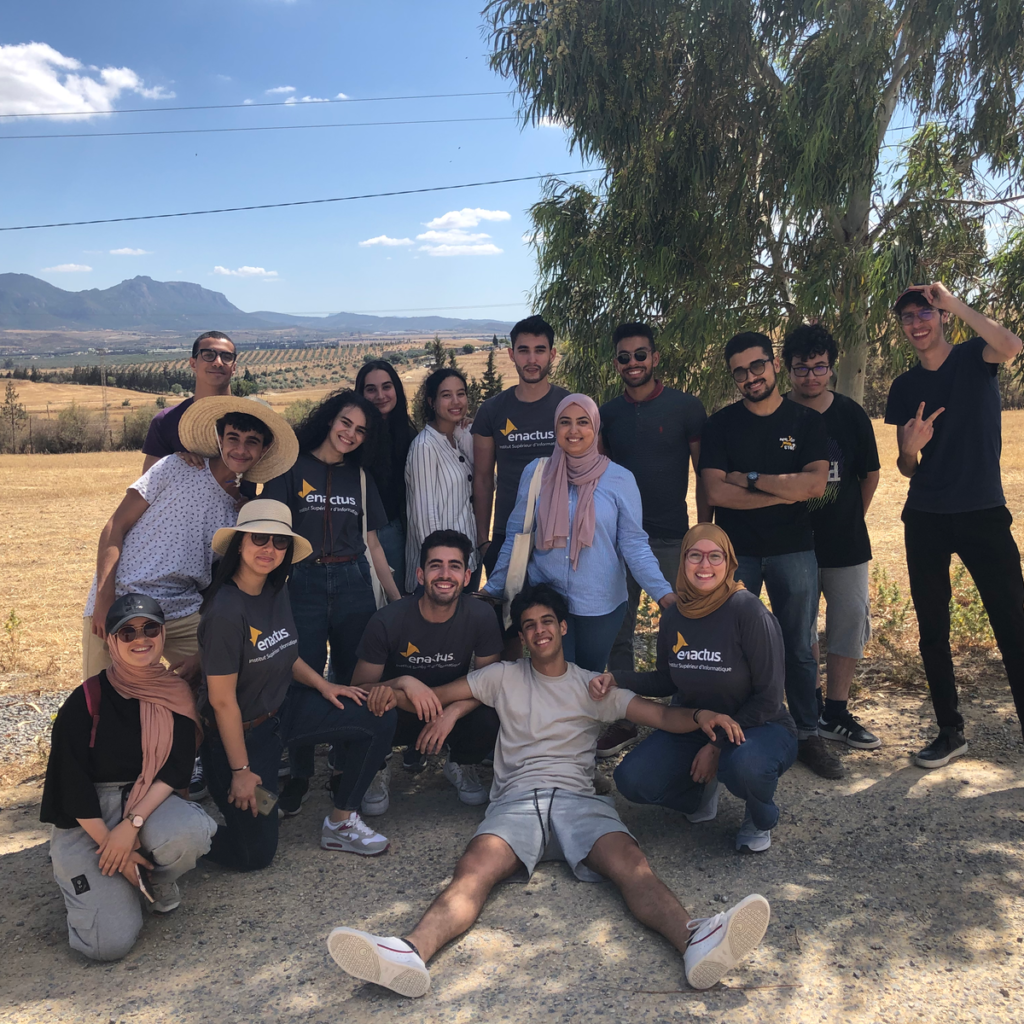
Enactus team from The Higher Institute of Computer Science of El Manar – ISI
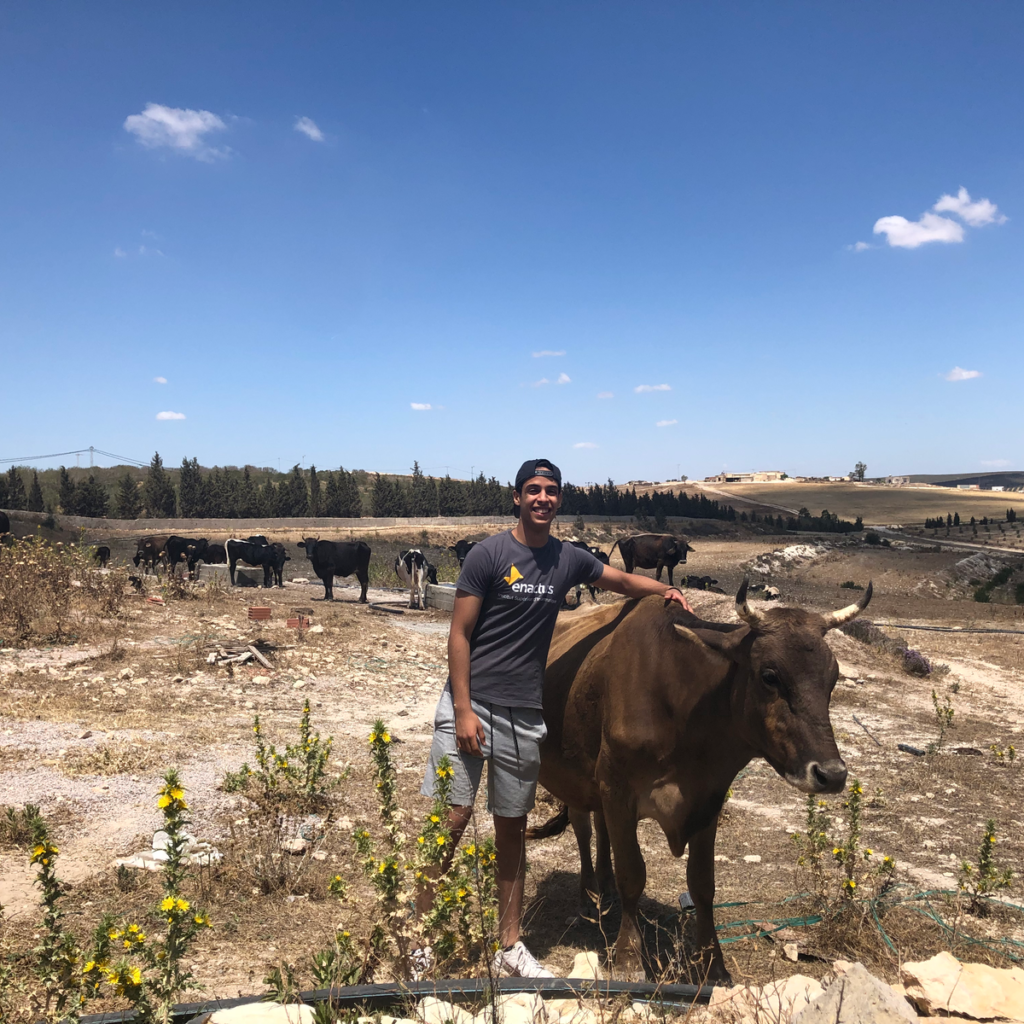
Zaghouan Cattle
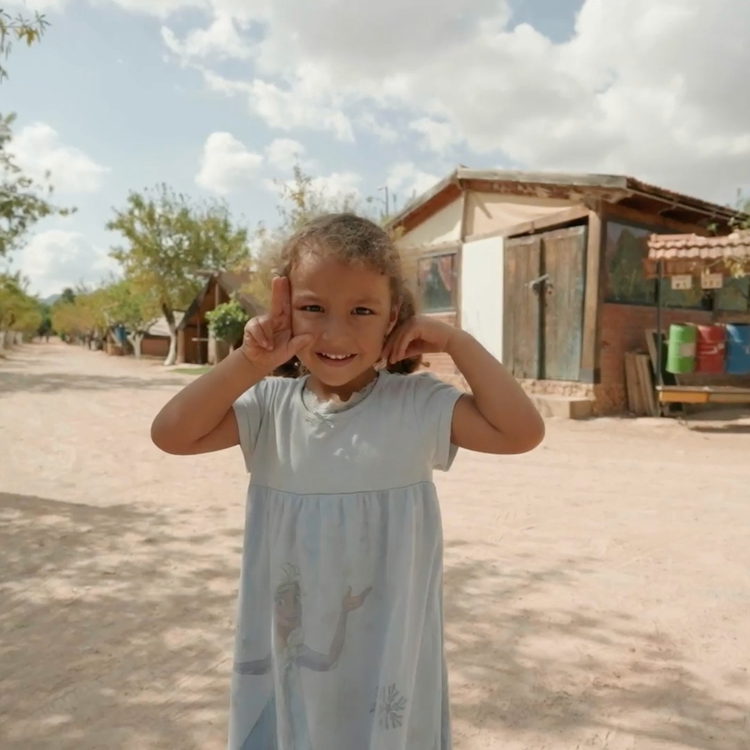
EPACT improves the lives of farming families
As supply chain disruption, drought, and global pricing makes livestock farming more expensive for Mr. Aissa in Tunisia, it also has a dramatic impact on maize cultivation in Kenya. As a result, the cost of maize to the consumer doubled this past year. Ugali, a nutritious and filling maize-based starch is an everyday staple, and it accounts for 36% of Kenyans’ total food intake.
So often food scarcity is not what drives food insecurity; food affordability is the reason so many are hungry. Vickens Obote has worked hard to get to university so that he can get the necessary credentials to become a pharmacist. Obtaining his degree has not been easy. He has often faced difficulty paying tuition as he juggles finances to make sure he can cover basic needs, even something simple like Ugali.
In the wake of rising costs, Enactus students at Kabarak University in Kenya began looking for an affordable flour substitute for the increasingly more expensive maize to mitigate the cost of food as a hardship for Vickens and so many others. They discovered an unlikely and abundant source for starch: grass. Grass is the most abundant organic polymer, covering 40.5% of the terrestrial earth. Cellulose, however, is not digestible by humans. Kabarak University students formulated a hypothesis: what if they could efficiently convert cellulose to an edible starch? By using the process of enzymatic biotransformation of cellulose in grass to edible starch, fortified by micronutrients, the Enactus team from Kabarak University had a flour that was nutritious and provided a similar taste and texture. They call it EcoStarch. The team is working with a handful of local farmers who can provide them with raw material. Unlike maize, the locally sourced grass is drought resistant, is not subject to supply chain disruptions or inflated distribution costs, and it grows in abundance. All these factors translate to a lower-cost product for consumers like Vickents Obote.
Vickens reduces his food costs by incorporating EcoStarch into his diet. And he now has more money to use toward finishing his degree. For Vickens, EcoStarch reduced food insecurity in the short-term and opened a path for long-term success by giving him greater financial flexibility to finance his pharmacological education and secure meaningful and well-paying work.
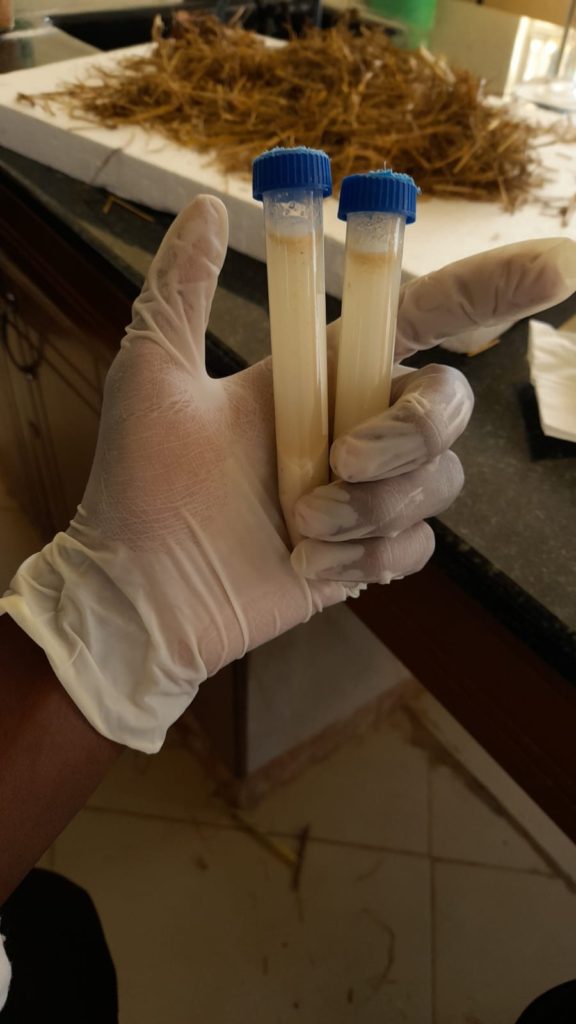
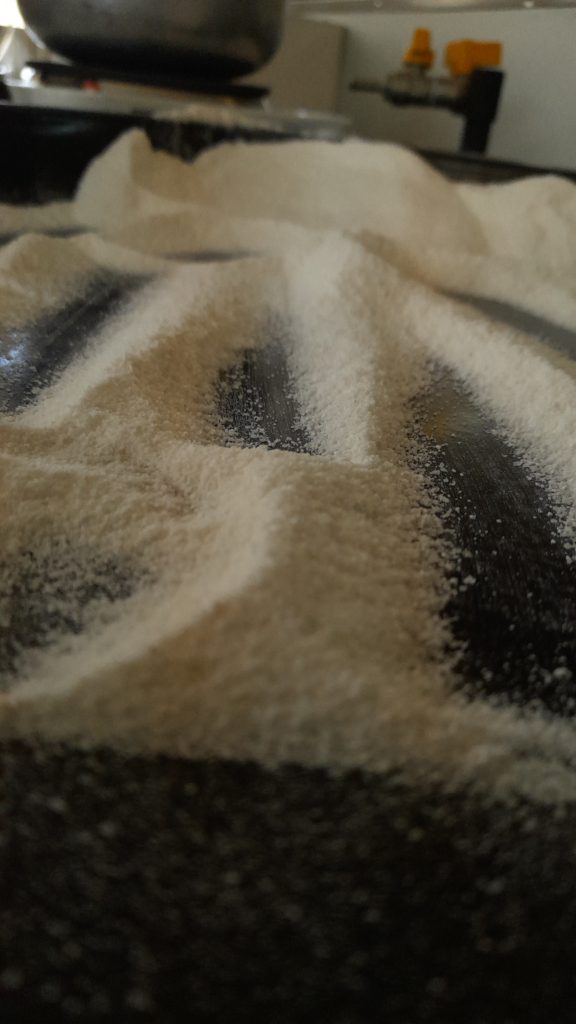
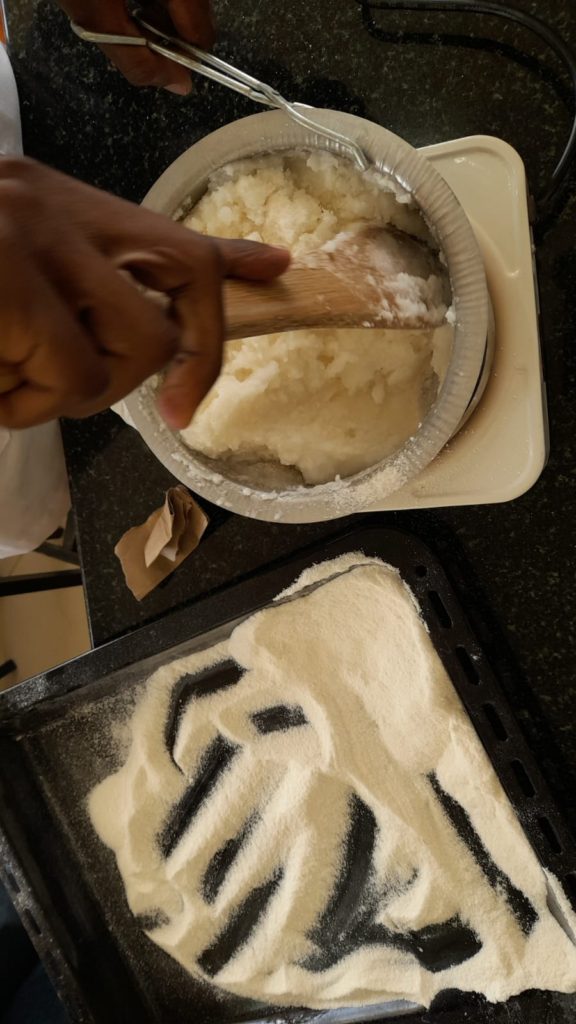
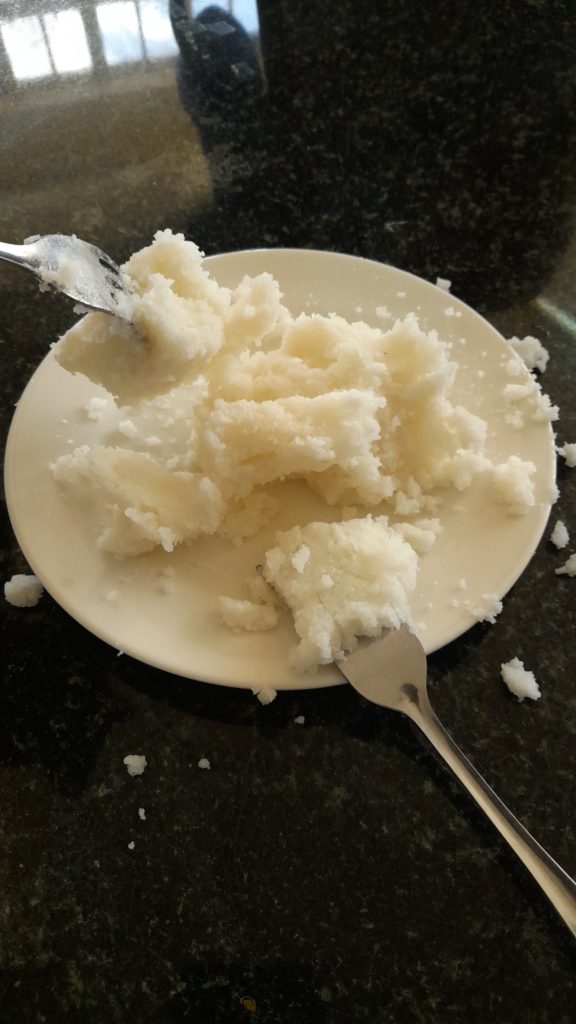
Converting cellulose to edible starch
Being at university, Vickens is more fortunate and indeed better off financially than scores of others. Six million children die each year because of hunger. Knowing that food shortage is not the issue, but that food affordability is, production of edible cellulose, the world’s most abundant polymer, could be the key to getting inexpensive, nutrient dense food to everyone, regardless of their economic status.
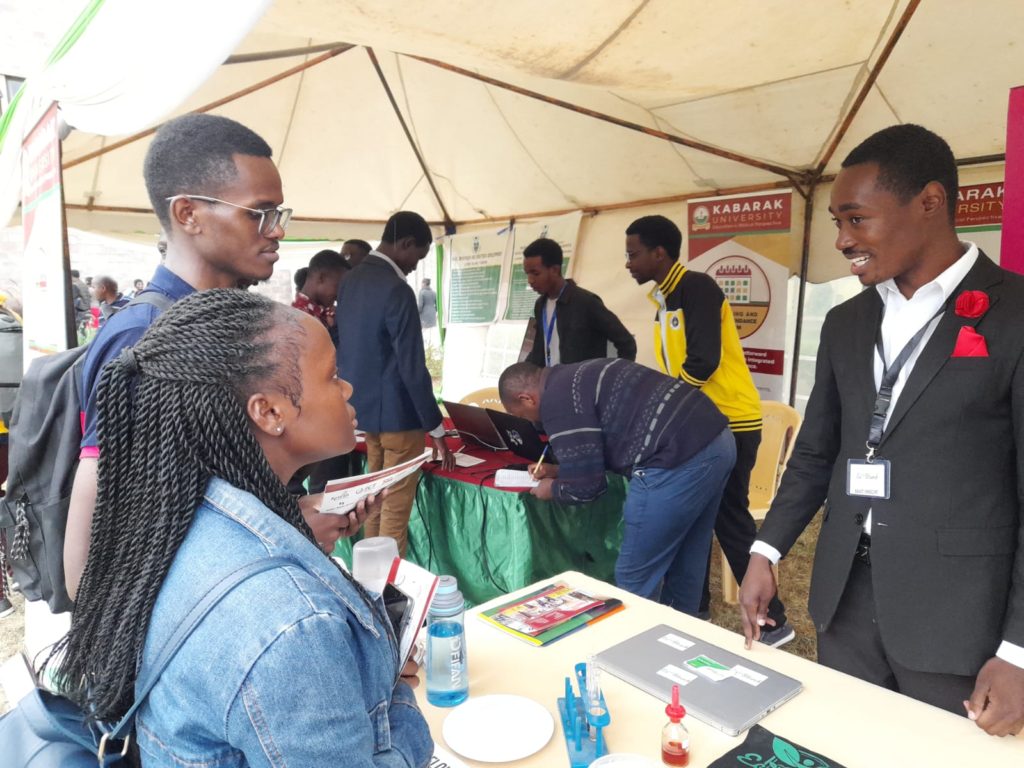
Explaining EcoStarch to curious consumers
The Kabarak University team has created something that could be globally transformative. In Kenya, they have received recognition for their success. What they need now is financial support for mass production, and that is the next hurdle in their entrepreneurial journey. Innocent Wafula, Enactus Kabarak President and EcoStarch Technical Lead, is hopeful. He can “picture a world without hunger . . . where there is safe, nutritious, and sufficient food, all year, for all people with no imbalances in access to this food due to the cycle of poverty.” Innocent says, “I have an optimistic glimpse of everyone having access to food regardless of their social status in the society.”
Sourcing less expensive raw material is an important means to keeping production costs low for producers and consumption costs low for consumers. Developing affordable technologies for family farmers is another way. In Brazil, agribusiness is a thriving sector, and Brazilian farmers provide nourishment for 800 million people around the world. Even so, 33 million Brazilians go hungry. Because of prohibitive farming costs, family farming that could feed the country’s undernourished accounts for only 23% of Brazil’s national food production.
A cheap, renewable source to augment plant yield has been wriggling with possibility in many parts of the world. Now in a college laboratory, Enactus students are breeding mealworms for fertilizer production. Mealworm excrement, or frass, is not only inexpensive to produce, but it enriches crop production and offers plants a natural resistance to pests and pathogens. While employed in other areas of the world, until recently frass was not utilized in Brazil.
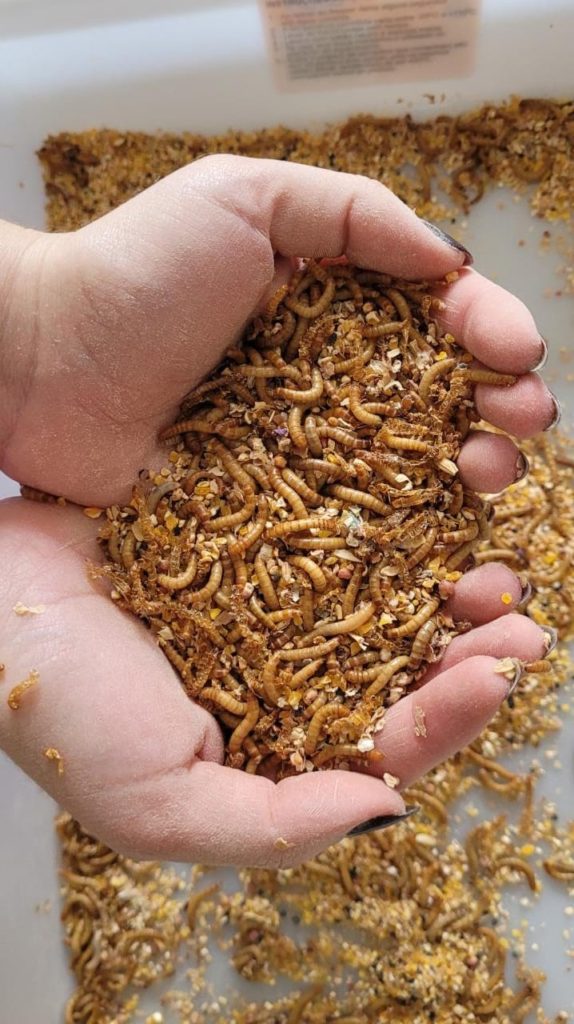
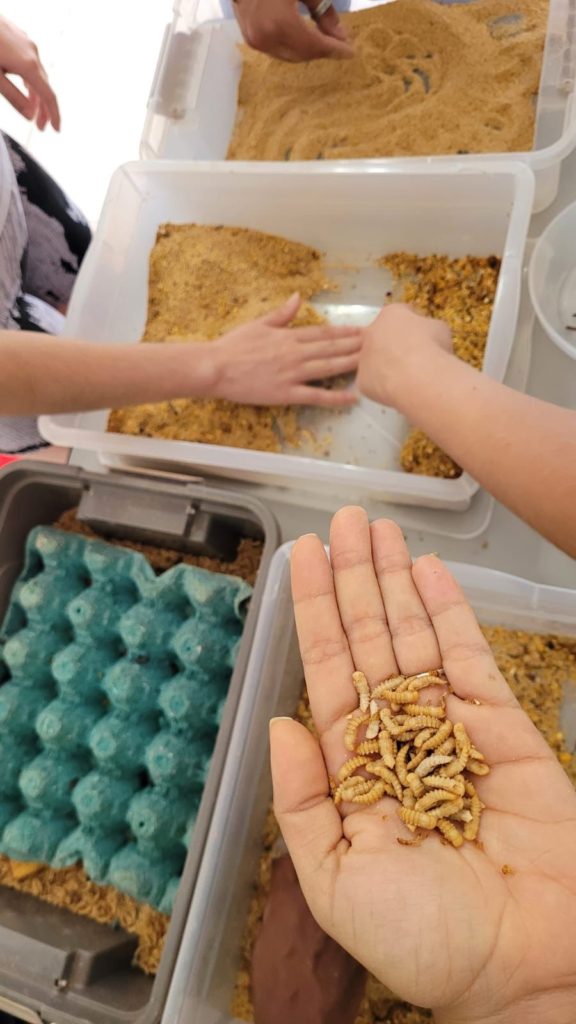
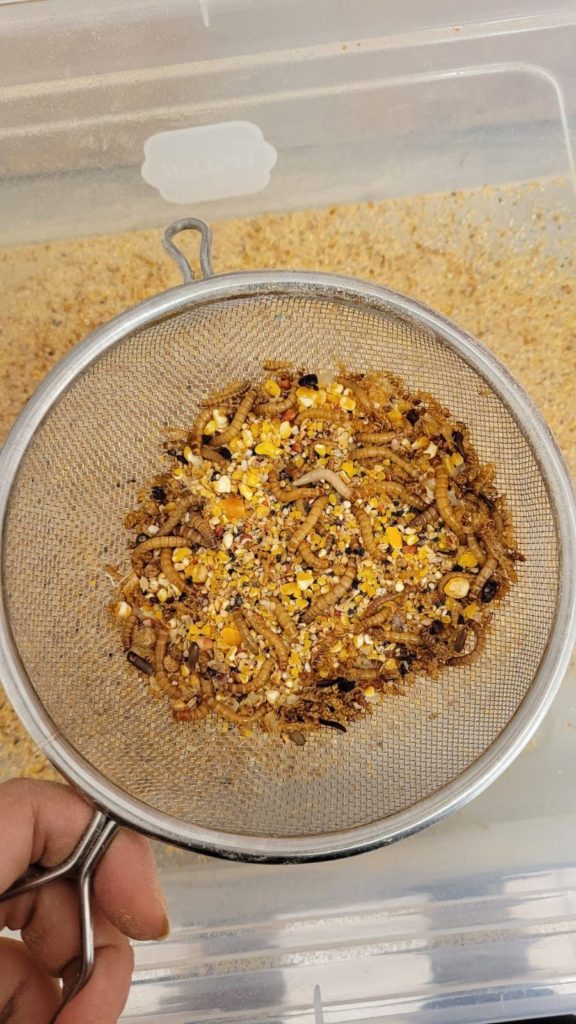
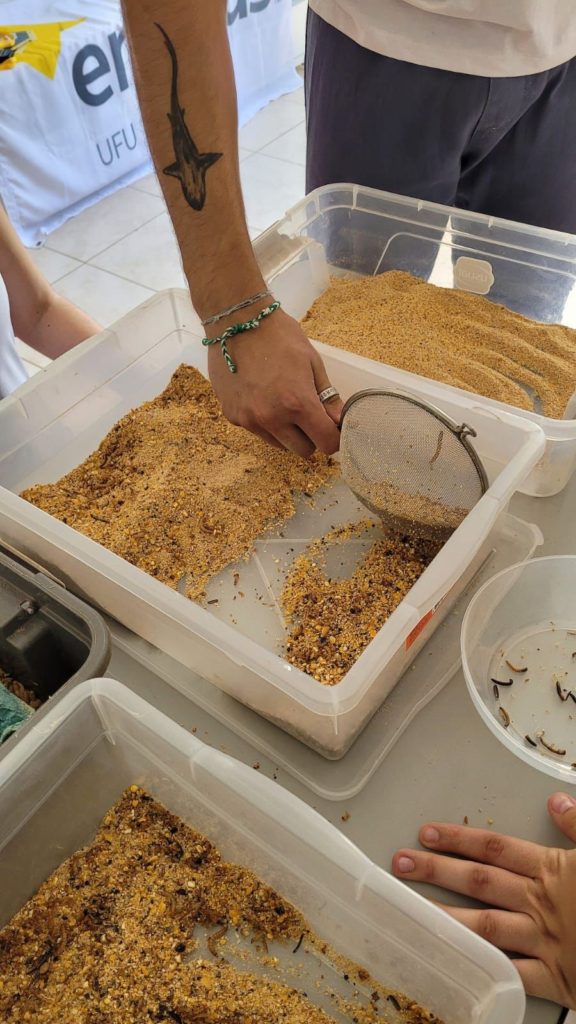
Creating bio-fertilizer from frass
Bread and Bug is a comprehensive frass harvesting and distribution enterprise developed by the Enactus Team at Federal University of Uberlandia in Brazil. In the implementation phase, Bread and Bug provided frass fertilizer to three family farmers in Uberlandia. The farmers’ flourishing crops resulted in a yield that generated an additional $1,500 in revenue and decreased their operating expenses by 60%.
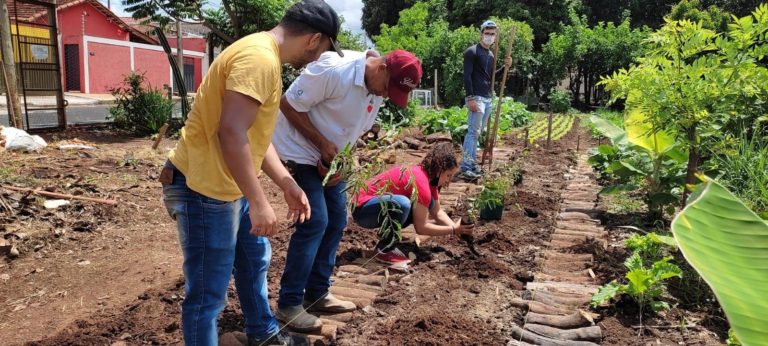
The cost to manufacture this micronutrient rich fertilizer is less than one dollar per kilogram, enabling Bread and Bug to sell it at three dollars per kilogram, which is less than commercial fertilizers. The team estimates that by July of this year, they will have turned a profit that will sustain operations.
Bread and Bug Venture Pitch
The next step in Bread and Bug’s expansion is to sell frass at municipal fairs frequented by small farmers. Bread and Bug is steadily building toward more sustainable and equitable agriculture practices for the small farmers, who can in turn provide more food security for the people of Brazil.
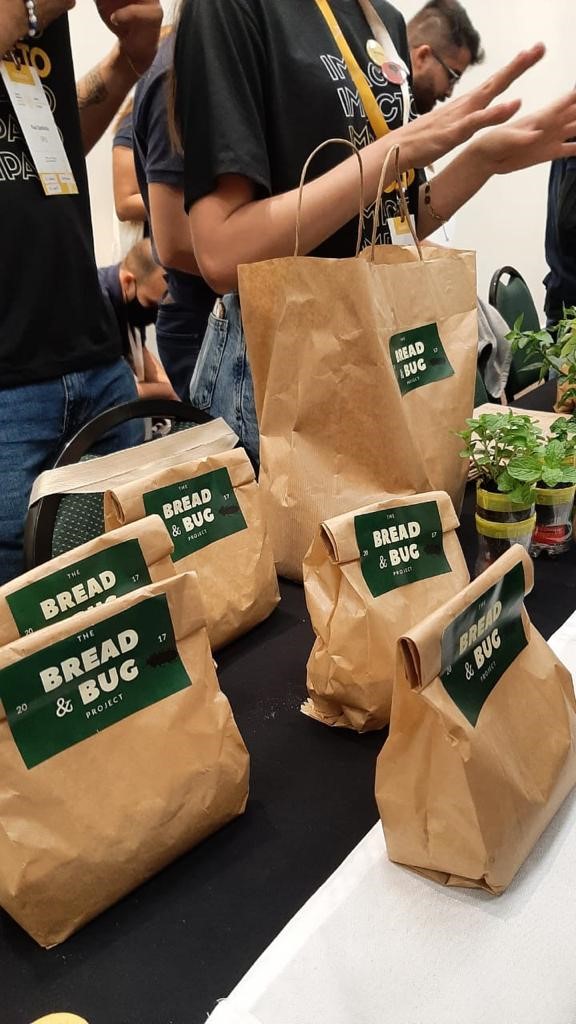
Imagine life as a small farmer in India. You perfected your growing technique and have a variety and abundance of fresh produce, but harvest and storage are expensive. You struggle to keep up, and your bounty overripens. You may be lucky if you are able to sell it at a distressed price before it becomes entirely unsellable and inedible. And if this is the regular cycle of your farming business, making ends meet is a daily struggle.
Small and marginal farmers constitute 85% of the total farming community in India. Farmers may produce crops in abundance, but a lack of storage results in inedible fruits and vegetables, creating as much of a scarcity problem as food that never existed. The amount of spoiled produce in India over a year is equal to that consumed by the United Kingdom in the same period. Forced distress selling that eats into small farmers’ profit margins compounds the problem. Making a living wage from farming becomes more difficult for small producers. As with other parts of the world, hunger in India is often a paradox: there is plenty to eat, but the cost of doing business hampers distribution, creating waste out of what could have been consumed. Again, hunger is not a result of scarcity; it is a result of affordability.
That is the absurd problem that Enactus students at Delhi College of Arts and Commerce recognize and hope that Zaraat can help solve. The team developed portable storage requiring no electricity and a small amount of water that can extend the life of 200 kilograms of food for up to seven days. By extending the life of the produce and helping small farmers form cooperatives, Zaraat has increased viable food supply, mitigated distress selling, and given small farmers more competitive opportunities in the marketplace. Post-harvest losses have been reduced by 60% among those they have helped, leading to more efficient and productive farming for over 250 agricultural families to date.
Zaraat decreases post-harvest losses in India
In our interconnected world that is more calorie rich than it has been at any point in time, too many children still go hungry. Hundreds of millions of families must consider food costs when making financial decisions. Small farmers who make up most of our world’s agricultural production are in danger of not being able to afford to support all who depend on them. It is a complex matrix of problems requiring an army of solutions.
United by a common desire for Zero Hunger and a belief that such hope is possible, Enactus entrepreneurs are intrepid. From seeing the potential in underutilized natural resources to creating innovative technologies that can transform raw materials, Enactus students across the globe are finding ways to bolster production and nourish the malnourished. With support of those who can help scale success, the next generation of social entrepreneurs dreams of a healthy global community where not one person goes hungry because of lack of access to nutritious food.
Tell us in the comments how you believe we can combat hunger and malnutrition.


